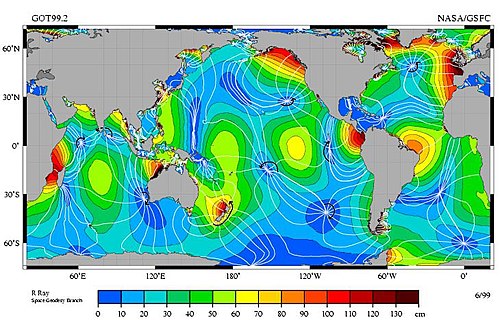Ebbnoun
The receding movement of the tide.
Ebbnoun
A gradual decline.
Ebbnoun
A low state; a state of depression.
Ebbnoun
A European bunting, the corn bunting (Emberiza calandra, syn. Emberiza miliaria, Milaria calandra).
Ebbverb
(intransitive) to flow back or recede
Ebbverb
(intransitive) to fall away or decline
Ebbverb
(intransitive) to fish with stakes and nets that serve to prevent the fish from getting back into the sea with the ebb
Ebbverb
(transitive) To cause to flow back.
Ebbadjective
low, shallow
Ebbnoun
The European bunting.
Ebbnoun
The reflux or flowing back of the tide; the return of the tidal wave toward the sea; - opposed to flood; as, the boats will go out on the ebb.
Ebbnoun
The state or time of passing away; a falling from a better to a worse state; low state or condition; decline; decay.
Ebbverb
To flow back; to return, as the water of a tide toward the ocean; - opposed to flow.
Ebbverb
To return or fall back from a better to a worse state; to decline; to decay; to recede.
Ebbverb
To cause to flow back.
Ebbadjective
Receding; going out; falling; shallow; low.
Ebbnoun
a gradual decline (in size or strength or power or number)
Ebbnoun
the outward flow of the tide
Ebbverb
flow back or recede;
Ebbverb
hem in fish with stakes and nets so as to prevent them from going back into the sea with the ebb
Ebbverb
fall away or decline;
Tidenoun
The periodic change of the sea level, particularly when caused by the gravitational influence of the sun and the moon.
Tidenoun
A stream, current or flood.
Tidenoun
Time, notably anniversary, period or season linked to an ecclesiastical feast.
Tidenoun
A time.
Tidenoun
A point or period of time identified or described by a qualifier (found in compounds).
Tidenoun
(mining) The period of twelve hours.
Tidenoun
Something which changes like the tides of the sea.
Tidenoun
Tendency or direction of causes, influences, or events; course; current.
Tidenoun
(obsolete) Violent confluence
Tideverb
(transitive) To cause to float with the tide; to drive or carry with the tide or stream.
Tideverb
(intransitive) To pour a tide or flood.
Tideverb
To work into or out of a river or harbor by drifting with the tide and anchoring when it becomes adverse.
Tideverb
To happen, occur.
Tidenoun
Time; period; season.
Tidenoun
The alternate rising and falling of the waters of the ocean, and of bays, rivers, etc., connected therewith. The tide ebbs and flows twice in each lunar day, or the space of a little more than twenty-four hours. It is occasioned by the attraction of the sun and moon (the influence of the latter being three times that of the former), acting unequally on the waters in different parts of the earth, thus disturbing their equilibrium. A high tide upon one side of the earth is accompanied by a high tide upon the opposite side. Hence, when the sun and moon are in conjunction or opposition, as at new moon and full moon, their action is such as to produce a greater than the usual tide, called the spring tide, as represented in the cut. When the moon is in the first or third quarter, the sun's attraction in part counteracts the effect of the moon's attraction, thus producing under the moon a smaller tide than usual, called the neap tide.
Tidenoun
A stream; current; flood; as, a tide of blood.
Tidenoun
Tendency or direction of causes, influences, or events; course; current.
Tidenoun
Violent confluence.
Tidenoun
The period of twelve hours.
Tideverb
To cause to float with the tide; to drive or carry with the tide or stream.
Tideverb
To betide; to happen.
Tideverb
To pour a tide or flood.
Tideverb
To work into or out of a river or harbor by drifting with the tide and anchoring when it becomes adverse.
Tidenoun
the periodic rise and fall of the sea level under the gravitational pull of the moon
Tidenoun
something that may increase or decrease (like the tides of the sea);
Tidenoun
there are usually two high and two low tides each day
Tideverb
rise or move foward;
Tideverb
cause to float with the tide
Tideverb
be carried with the tide
Tide
Tides are the rise and fall of sea levels caused by the combined effects of the gravitational forces exerted by the Moon and the Sun, and the rotation of the Earth. Tide tables can be used for any given locale to find the predicted times and amplitude (or ).

















